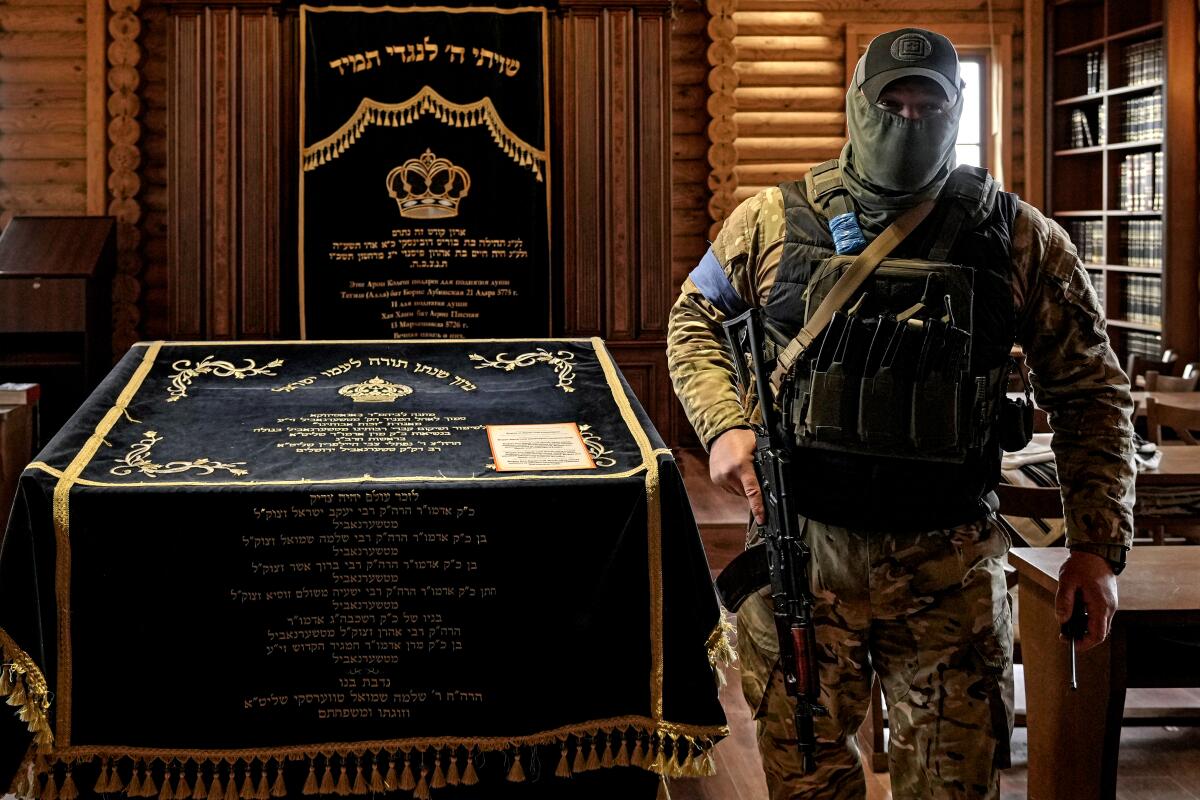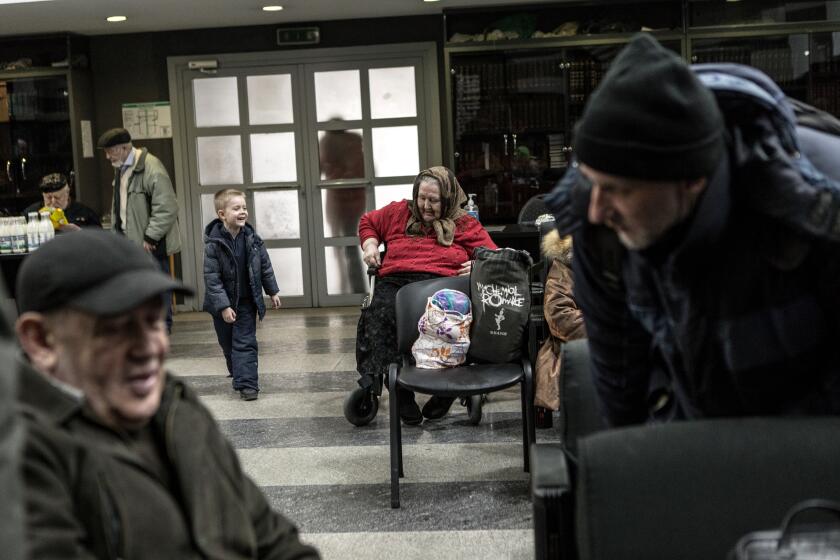This Passover, as Ukrainians flee their homeland, remember the danger of being silent

- Share via
As Jewish families gather this weekend for Passover seders and read through the Haggadah — the sacred book that guides the evening — we will interpret, discuss, even argue. Why do the Four Questions have no answers? Why did there have to be 10 plagues? Why isn’t Moses mentioned even once?
“Why” is a very Jewish word. We don’t leave things alone. We question, probe and push to understand what our tradition wants us to do.
As Jews celebrate leaving Egypt and our journey home to safety, the images of Ukrainians fleeing their homes to find safety from invaders fill the media. That’s how the Jews ended up in Egypt, of course, fighting for survival. A famine forced Jacob and his family to go to Egypt, where his son Joseph had gathered food.
Let’s hope Ukrainians will not have to wait the 400 years Jews did before returning home.
The Jewish population of Dnipro has been decimated repeatedly over 350 years, but never erased. It’s an example all Ukraine can follow.
But while these two peoples move in different directions — Jews in historical time, Ukrainians in real time — the source of both migrations is the same. Putin comes off, well, pharaonic.
Beware the tyrant. The Haggadah warns us to be vigilant: “In every generation there are those who rise up against us and seek to destroy us.” Maybe not in every generation, and maybe not us, but the message is clear: Pharaoh was not a one-time thing.
But what do we do? Yes, the Haggadah then promises, God “will save us from their hands.” But ask any Holocaust survivor — divine intervention a la the parting of the Red Sea no longer figures into humanity’s deal with God. Since biblical times, therefore, we must interpret that text a little differently, more like “given all with which I have blessed you, it’s your turn.”
Joachim Prinz, the civil rights leader and extraordinary rabbi who preceded me in my congregation’s pulpit, delivered a brief, riveting speech at the 1963 March on Washington. Prinz’s career began in his native Germany. Weary of his tirades from his Berlin pulpit, the Nazis made it clear: Leave at once, or you won’t be leaving at all.
In the speech, titled “Silence,” Prinz proposed an audacious thesis: The problem in Germany had not been that the mass of Germans supported the Nazis. He believed the opposite was true. The problem was, they didn’t do anything about it.
“A great people which had created a great civilization had become a nation of silent onlookers. They remained silent in the face of hate, in the face of brutality and in the face of mass murder.”
Seeking to understand Germans under Nazism, historian Mary Fullbrook explored this idea in her book, “A Small Town Near Auschwitz.” Her detailed account of the life and career of one local official prompted one reviewer to note, he “seemed oblivious.” Oblivious. In Nazi Germany.
Every age faces its challenges, and in another passage the Haggadah teaches how Jews are to respond: “In every generation, one must see oneself as having been personally brought forth from Egypt.”
Passover is the ideal almost-post-pandemic ritual. It combines the powerful elements of story, food, music and togetherness
Our ancestors’ liberation from Egypt did not only affect them. All generations that followed were liberated as well. As recipients of that extraordinary act we must accept the obligations that come with it. Payment on this debt must be made in every era. The currency? Our active engagement in the struggle against any other pharaoh and against the enslavement of any other people.
When he spoke in Washington, Prinz did not believe the majority of Americans supported discrimination and segregation. He feared, however, that they would not lift a finger to oppose these injustices, that America, too, would be “a nation of silent onlookers.”
Seders are long, prayer- and song-filled meals. The political content of the Passover story will inevitably be melded to match the people sitting around the table. But this year one imperative of the Haggadah is undeniable: To be an onlooker is not an option.
Clifford M. Kulwin is rabbi emeritus of Temple B’nai Abraham in Livingston, N.J.
More to Read
A cure for the common opinion
Get thought-provoking perspectives with our weekly newsletter.
You may occasionally receive promotional content from the Los Angeles Times.











